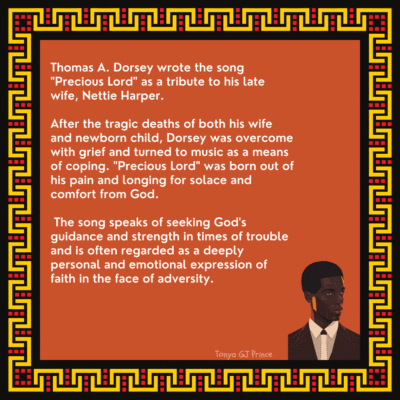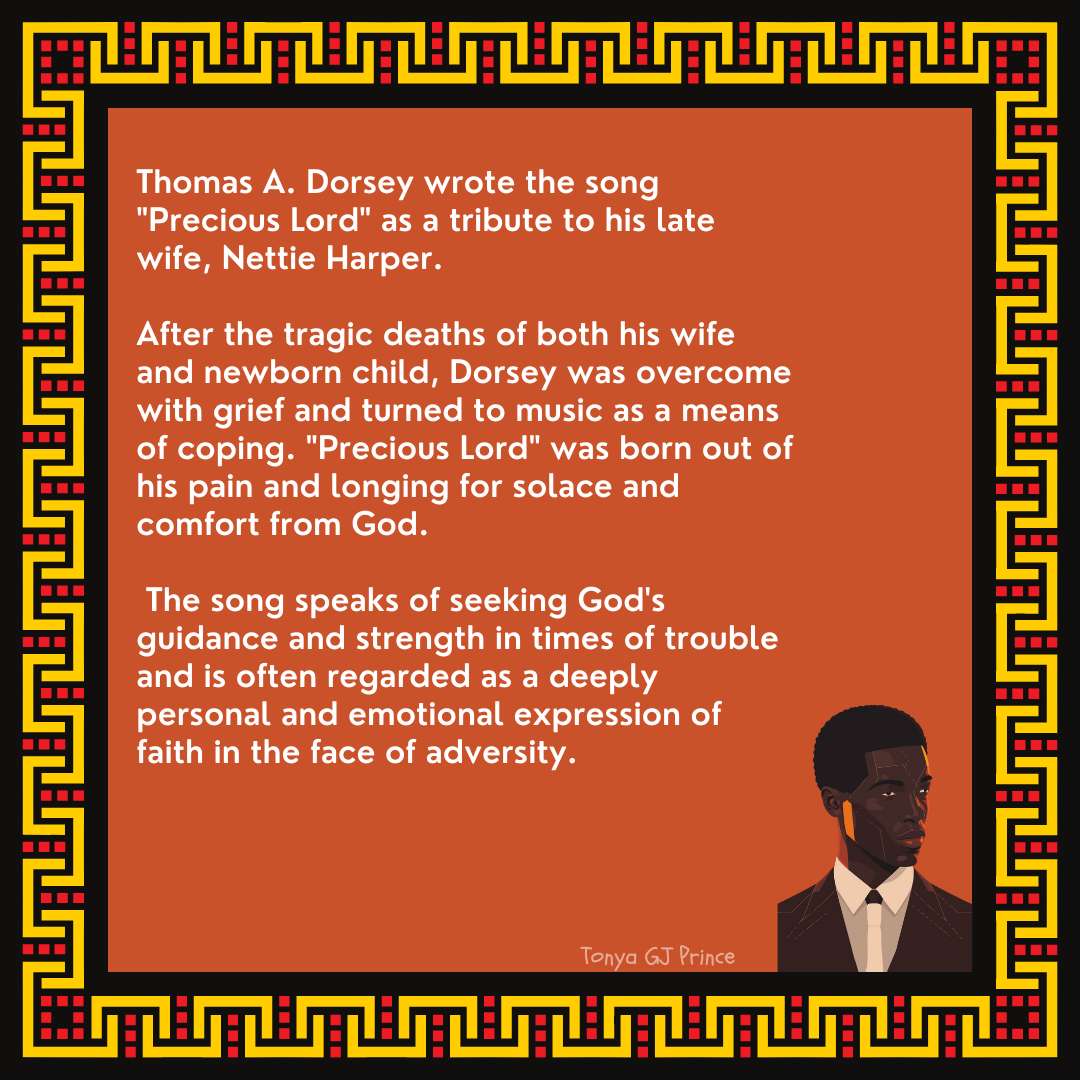In this life, there will be pain, trials, and tribulations. I am truly thankful for the gift of music. High-quality music can sooth

In this life, there will be pain, trials, and tribulations. I am truly thankful for the gift of music. High-quality music can soothe our souls and uplift our spirits.
The History of “Precious Lord, Take My Hand”
“Precious Lord, Take My Hand” was written by Thomas A. Dorsey in 1932—a man now known as the Father of Black Gospel Music. But its birth came through unimaginable grief.
Dorsey was already a successful musician in the 1920s and early 1930s, known for blending blues and jazz with sacred lyrics. He had written for greats like Ma Rainey and had success as a secular composer. But his life took a turn toward the sacred after tragedy struck.
In August of 1932, while Dorsey was away in St. Louis performing at a revival meeting, he received the devastating news that his beloved wife, Nettie Harper Dorsey, had died during childbirth. And just hours later, the newborn baby also passed away. Dorsey was shattered. Paralyzed by grief, he later wrote:
“I became lost in grief and despair. I had no will to live. I wanted to give up.”
But in his deepest mourning, he turned to the only thing he had left: music and faith. One day, sitting at a piano, he began to cry out from his soul. The words came to him like a prayer:
“Precious Lord, take my hand,
Lead me on, let me stand.
I am tired, I am weak, I am worn…”
He wrote the lyrics and set them to the melody of an earlier hymn tune by George N. Allen, adapted by composer William Doane. The result was more than a song—it was a lament, a prayer, a spiritual lifeline. It was a hymn of survival.
Legacy and Impact
“Precious Lord” became one of the most beloved gospel songs of all time. It found a home in Black churches across America and around the world—especially among those who were weary, suffering, or navigating grief and injustice.
Dr. Martin Luther King Jr. famously requested that “Precious Lord” be sung at civil rights rallies. He once called it his favorite song. The night before he was assassinated in Memphis in 1968, he asked for it to be sung at an upcoming event. After his death, it was performed at his funeral by his close friend, gospel singer Mahalia Jackson.
The song also became deeply associated with the struggle for justice, healing, and dignity in the face of generational suffering.
Why It Still Resonates
“Precious Lord, Take My Hand” speaks to the soul’s exhaustion and yearning.
It offers hope not from above as a faraway thing—but as a handheld comfort, a sacred closeness.
It tells those who’ve lost everything: you are not alone.
For many Survivors—of violence, injustice, grief, racism, and poverty—this hymn is not just a song. It is a testimony.
It reminds us:
Even in the valley of sorrow,
Even when no one sees your tears,
Even when the world fails you,
There is still a hand that will hold yours.
4. Validation and empathy: Certain songs have lyrics that resonate with our experiences, making us feel understood and validated in our pain. Knowing that someone else has gone through similar struggles and managed to overcome them can provide comfort and hope.

